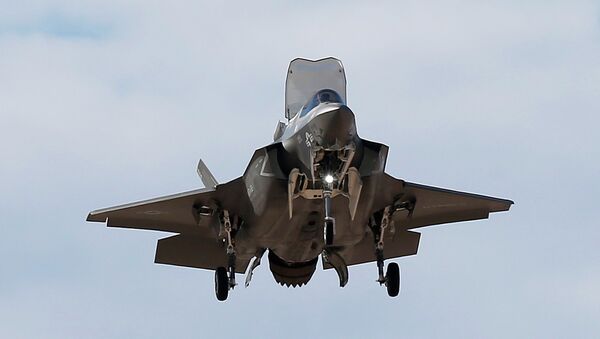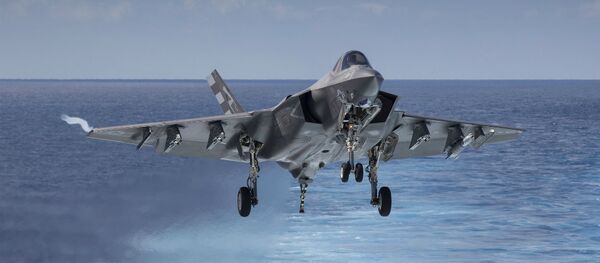A Spanish Defense Ministry representative told Sputnik that the country is setting new medium-term and long-term goals for the armed forces.
“A gradual replacement of the Spanish Navy’s Harrier jets is part of this planning process,” a ministry representative told Sputnik. "At the moment, the task is to consider all possible options," he added.
In an interview with Sputnik, Jose Luis Hernando Diaz, an assistant professor at the Polytechnic University in Madrid, said that while the F-35B is a good replacement for the Harrier, its numerous shortfalls, including the high price and a long trail of malfunctions, are unacceptable for such an expensive aircraft.
Jose Luis Hernando Diaz considers it unlikely that the incident will affect Spain’s choice to buy the F-35B. Before it does, however, it wants to wait for the fighter to enter service in other countries’ militaries.
“It is too early to draw conclusions about the causes of the accident and, therefore, to predict its consequences. Whatever the main reason for the crash, Spain’s attitude has always been one of a reasonable waiting mode, ” he noted.
Because Spain does not participate in the Joint Strike Fighter program and none of its companies are involved in the production process, the F-35B fighter is likely to cost Spain more than, for example, Britain or Italy.
Hard Choices
The Defense Ministry claims that it intends to analyze and evaluate all factors, including operational, technological, industrial and economic.
Any future weapon system must meet operational requirements, which inevitably necessitates the inclusion of high-tech elements. However, industrial factors, life cycle costs, etc., are also analyzed,” the ministry representative explained.
For his part, Jose Luis Hernando Diaz believes that buying from 10 to 12 units could be an option. However, this implies long-term costs and the need to make this purchase a priority, overshadowing the other needs of the armed forces.
“They also discussed buying the F-35B together with the F-35 for the Air Force and/or for their possible combined operation with the Navy. In my opinion, this option is not realistic due to accounting and budgetary considerations,” he added.
At the moment, the expert sees no alternative to the acquisition of the F-35B, because this is the only realistic option in the short to medium term to replace the Harrier, since the European projects are now only at an early stage.
One such "highly unlikely option" could be the FCAS 6th generation European fighter jointly being developed by France and Germany. At the same time, it is not yet known whether a V/STOL version of this aircraft will be created to land on board the Spanish Navy’s multirole landing craft-carrier the Juan Carlos I.
Time Strapped
But the main problem with this option is the timing. The French-German FCAS will make its first test flight only in 2025. It is not expected to become fully operational before 2040, a decade after the Harriers have outlived their lifespan.
But the Spanish Ministry of Defense is considering all options.
“The procurement planning process is in its infancy, and no option can be dismissed out of hand, including, of course, the European fighter FCAS,” the Defense Ministry representative said.
There are less attractive options, however, such as buying a fighter plane of the same 4th generation as the Harrier, albeit a new one. However, this would put Spain behind world and regional powers in terms of its ability to respond to threats.
READ MORE: UK's First Four F-35 Fighters Land in Norfolk — Royal Air Force
Whatever the final decision, it needs to be taken soon to prevent a situation of a no-go when the FCAS is not yet ready to fly and the Harriers are no longer fit for operation.
Madrid will then have to choose between two very unflattering options: to remain without fighters or to splurge on the F-35Bs and hope that they do not fail.



